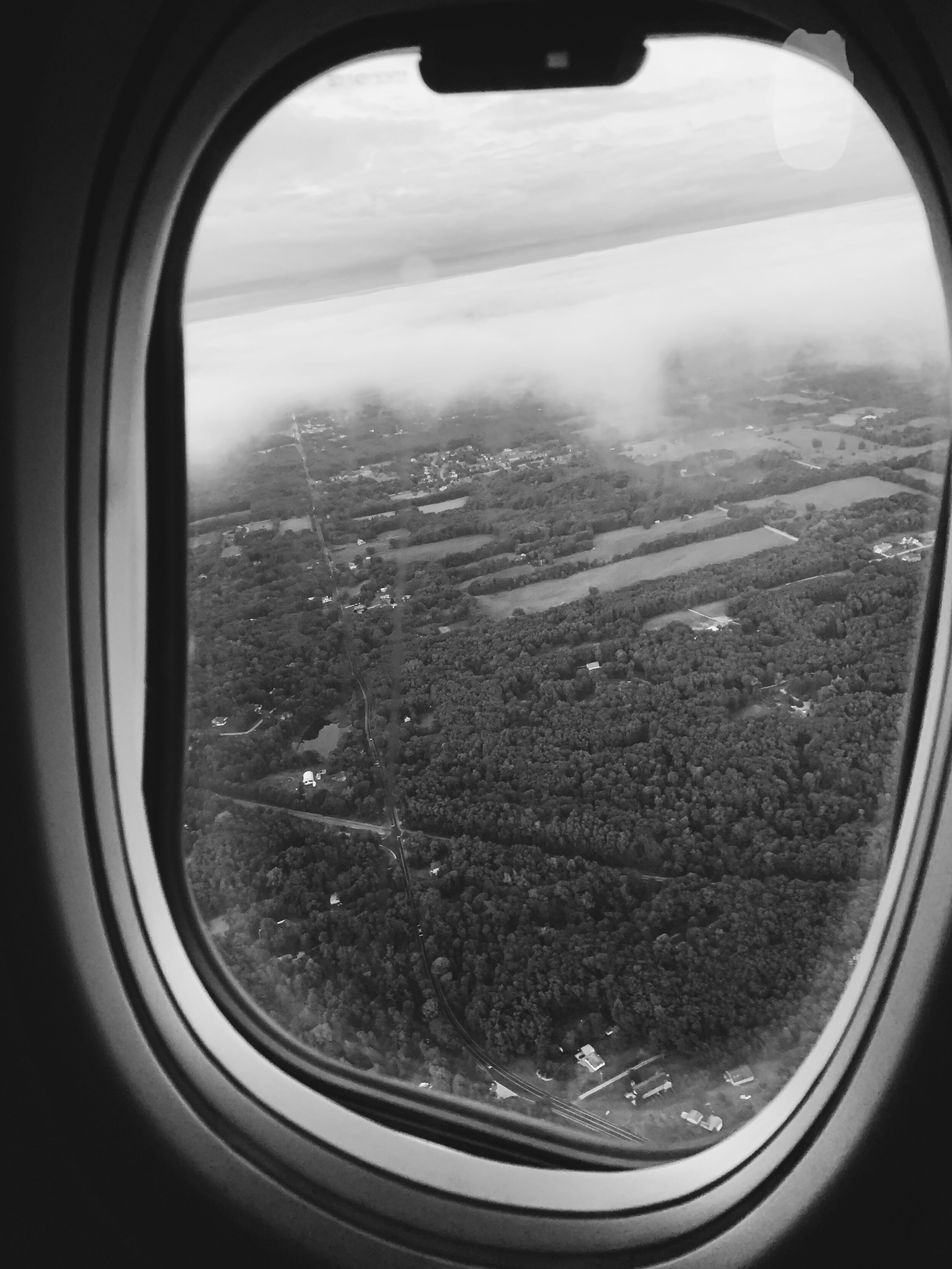5 Tips for Dealing with Crisis while Travelling
Where have I been!?
In the last 30 days I moved back to the USA from South Africa, attended my Grandmother’s funeral in New York, graduated from USC in LA, shot an online course for the company I work for, travelled to Ireland, spent a few days in an ER there with my sister Grace and travelled back to Michigan where I will finally get to linger for a little while. Needless to say it has been quite the dynamic and emotional month.
In my last post I referenced getting robbed in South Africa and acknowledged that things don’t always go as planned while travelling. Last week my sister was in a cycling accident in Ireland that resulted in a 5-hour emergency rescue from a national forest, a broken femur, a surgery, and multiple nights in a foreign hospital. The accident brought the concept of “things not going as planned” to a whole new level so I figured it would be worth doing a full post about dealing with trauma in unfamiliar environments.
Here are 5 TIPS for DEALING with CRISIS while TRAVELLING based on the week my family just spent in Ireland.
1. EMBRACE THE HELP OF LOCALS
Whenever you are in a new or unfamiliar place, you are more vulnerable than you are in a place where you have friends and family nearby or at the very least know the area, language, and culture. So when something traumatic happens while you are travelling it is important to accept the help of locals whenever it is offered. Whether it’s an injury or a lost item, locals are often the best sources for knowing where and how to approach any given situation.
In Ireland, after Grace fell off her bike on a path in a national forest, a local Irish couple happened to be strolling by and stayed with my family until help arrived. They offered Grace extra clothing to stay warm and even a place to stay if we couldn’t extend our Airbnb while Grace recovered. Simple gestures can go a long way in a crisis situation so don’t hesitate to accept help when it’s presented.
2. CHANGE YOUR EXPECTATIONS
When any sort of trauma happens on a trip, an injury, sad news from home, a stolen item, etc, the trip will be clearly divided into the part before the incident and the part after. Therefore, when something traumatic happens, you must adjust your expectations because the trip will never be able to continue the way it was before the incident occurred.
In Ireland, Grace landed in the hospital half-way through our trip. As soon as I got the call from my dad saying Grace was badly injured, I knew our trip was going to be very different from that moment on - and that was okay. My family had to switch into survival mode and it was immediately clear to everyone that the number-one priority was making sure Grace was going to be alright.
3. MAKE A LIST OF EVERY TRIP VARIABLE THAT MAY BE AFFECTED BY THE CRISIS
Keeping a clear head is near impossible during a crisis situation. Adrenaline is pumping and what-ifs are clouding your thoughts - all of which is magnified in a foreign place. Making a list of everything that could be affected by your new situation is a great way to make sure nothing slips through the cracks.
In Ireland, our list of variables included the following (along with notes about why they were relevant to our situation):
The Rental Car - We were unable to return it on time.
Accommodations - We had to extend our stay in Killarney and delay our arrival in Dublin.
Stairs - We had to make sure our accommodations would be accessible to Grace once she was discharged (AKA: No Stairs.)
Plane Tickets - We had to see if there were options to delay our departure for Grace’s recovery.
Getting to Dublin - We were flying out of Dublin so we had to find a way to get Grace there.
4. PICK SOMETHING TO BRIGHTEN THE END OF THE TRIP
Tip #2 was about changing your expectations for the trip after something traumatic occurs. This doesn’t necessarily mean that the rest of your trip has to be encompassed by a dark and gloomy tone. You can’t expect to continue your trip as planned but you can try to pick at least one more thing to do post-crisis that will brighten up the end of your time away.
In Ireland, Grace was determined to get some shopping done. So, once we made it to Dublin, she power-crutched down Grafton Street to a Vans store, one of her favourite brands. This was her one outing in Dublin and it definitely pushed her physically, but it was successful in lifting her spirits before the trip back home.
5. REMEMBER THAT YOUR DESTINATION ISN’T GOING ANYWHERE
Sometimes a travel crisis means you have to go home early. If this is the case, remember that you can always find your way back to your destination. It’s of course unfortunate for anything traumatic to occur while you are travelling but, if you are a frequent traveller like me, it’s almost inevitable at some point.
In Ireland, we left as scheduled but the trip didn’t really continue beyond Grace’s accident because she could barely walk and we had no intentions of leaving her at the hospital while we kept enjoying the Irish countryside. I reminded myself that Ireland, and more importantly family trips, are not going anywhere. Ireland is the kind of place I would not be surprised to return to at some point. But last week had to be about Grace and the family.
Bonus Tip: DON’T BLAME YOURSELF
Finding someone or something to blame is a common coping mechanism - I’ve certainly been guilty of this in the past. But if something happens to you, a family member, or a friend when you are overseas, don’t blame yourself - whether or not it was your fault (although it probably was not) the negative energy associated with pointing blame is the last thing you need on your trip.
Sometimes things just don’t go as planned. Sometimes things go just plain wrong. But it’s how you deal with the aftermath that will have the most impact on how you carry on from a traumatic experience overseas.





